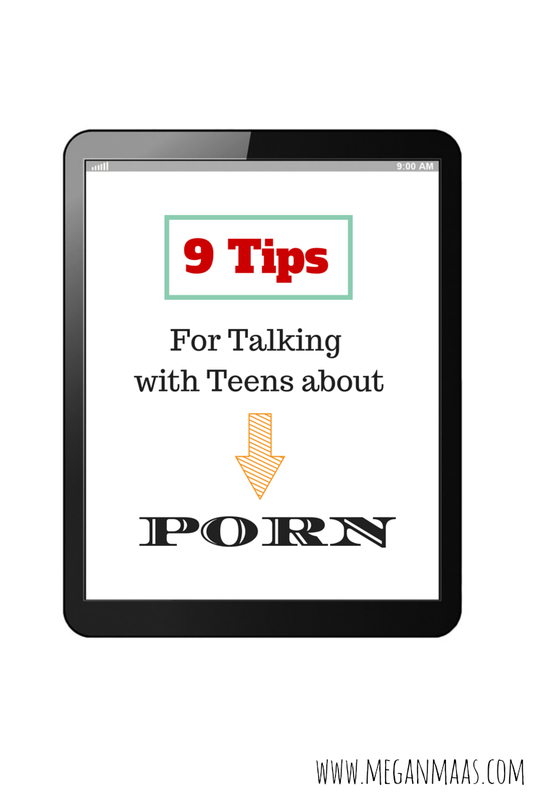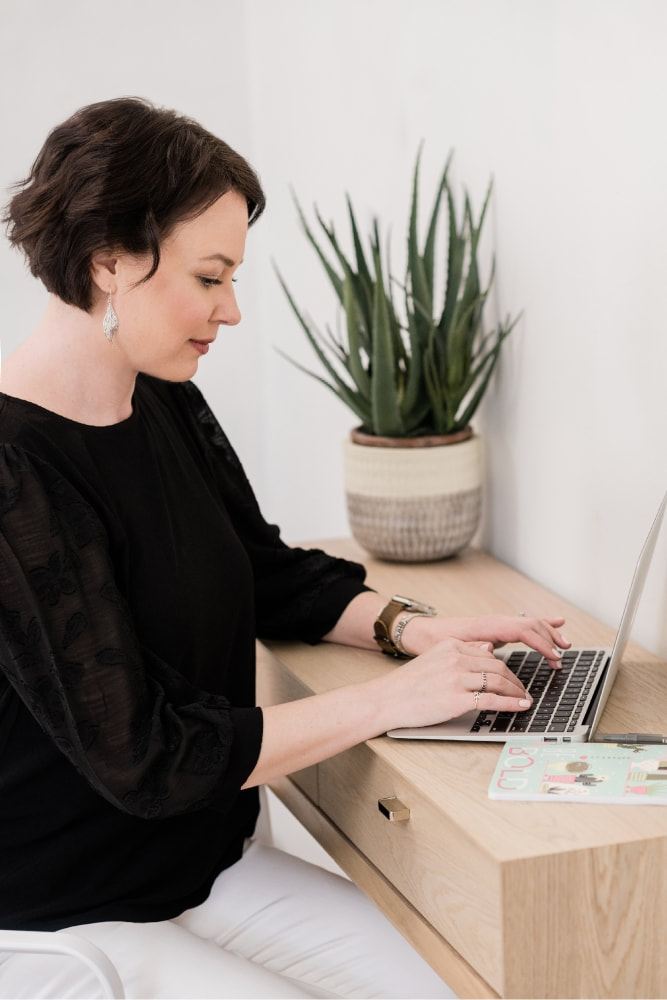|
I know, talking about sex with kids is hard enough, let alone talking about porn! You may have tried to have “the talk”, and that was awkward, so now you just hope for the best! You’re not alone. Our ever-growing-media-saturated culture is not easy to keep up with. Even sex educators and sex researchers like myself have a hard time keeping up. Luckily, you get more than one shot. Talking about sex and porn isn’t a one-time only deal. Especially if your children are young or haven’t seen much porn yet. So, make sure to read part 1 of this 3-part series and prepare yourself first. In my years of studying and talking about sexuality and pornography with college students, teachers, social workers, counselors, and academics, I’ve discovered some important talking points to get conversations going. Regardless of how you feel about how right or wrong porn is, it is essential you understand porn and sex are quite different and should be approached differently.
In general, you will want to keep a positive tone, and try to be as conversational as possible. Kids rarely react well to stern lectures about sex. One of your goals is to establish yourself as an approachable parent, and being positive and conversational helps you achieve that. In general, put these talking points into your own words and modify as needed for younger kids. For example, you can say, “pictures of naked people” instead of “porn”. The following are 9 general talking points that can help you start or continue multiple conversations about porn, sex, and our sexual culture:
1. If you’ve rarely discussed sexuality, apologize. Additional talking points:
2. Sex and nudity are some of the most exciting aspects of life and have been celebrated in nearly every culture for thousands of years. Additional talking points:
3. Porn is not about sex or nudity. Additional talking points:
Why: It is important to make a distinction between porn and sex. Describing porn as an industry can help kids understand why it’s not necessarily real and shouldn’t be used as a means of sex education. Getting a child to understand the aspects of the industry that they are supporting is an important value to instill, so they understand their internet use as an extension of their own values and not just meaningless entertainment. 4. Due to the enormous profits to be made, there are many companies out there taking advantage of their performers or encouraging them to engage in extreme sex acts to stay “marketable”(2). Additional talking points:
Why: It’s important for kids (and adults) to understand the profit that is driving the type of sex they are seeing, especially for kids who haven’t had sex yet. For example, this would be really important point for you to make if your child has seen bukkae (when multiple men ejaculate on the face of 1 woman at the same time) or double penetration (when 2 men put 1 penis in an anus and another in the vagina). 5. Sex is about pleasure! Additional talking points:
6. Masturbation is completely normal. Additional talking point:
7. Masturbating to porn is different than masturbating without porn. Additional talking points:
Why: As a culture, we often think of porn use as synonymous with masturbation. In fact, I’ve had dozens of college students in shock and awe over the revelation that they could reach orgasm on their own without watching porn. This is a very important life skill to have! It’s also important to be able to masturbate the old fashioned way, as there is some growing evidence that masturbating to porn creates a “high” that is more “neuro-chemically” rewarding than other sexual behaviors, making real sex less enjoyable.
8. When you are an adult, you can decide for yourself how much you would like porn to be a part of your private life. Additional talking points:
Why: This sends the message that porn is for adults. Even if you would like them to never use porn, this sets them up for thinking about how porn would fit into their life when they’re older and letting them know, if they are using porn, it’s on them. Not you. They’ve been informed. 9. Porn is going to be everywhere, if it isn’t already. Additional talking points:
In general, as you have these conversations, you want to focus more on asking questions and responding calmly without judgment, rather than going through the list as administering a lecture. Perhaps set aside a couple of months and make it a goal to talk about one of these points each week, or break it up into 3-4 sessions and repeat as needed when something comes up that allows you to have a conversation (TV show, friends, movie, advertisement, current event, etc.). If you know your child has already seen a fair amount of porn ask him/her, “Did you see anything that was confusing to you?”, “Did you see anything that scared you?” Remember to always respond warmly and calmly to encourage more discussions (e.g. “Not many people would be willing to discuss this topic. I’m really proud of how honest you are being right now.”). Talking about porn doesn’t have to be painful or weird, just relax and dive in and then dive in again. Stay tuned for part 3, where I will show you steps parents should take to change the tech environment in a household. If you don’t want to miss out: Sign up for my mailing list, follow me on Twitter, or like me on Facebook. (1) Brown J. D., & L'Engle K. L. (2009). X-rated: Sexual attitudes and behaviors associated with US early adolescents' exposure to sexually explicit media. Communication Research, 36, 129-132. (2) Reist, M. T., & Bray, A. (Eds.). (2011). Big porn inc: Exposing the harms of the global pornography industry. North Melbourne: Spinifex Press. (3) Bergner, R., & Bridges, A. (2002). The significance of heavy pornography involvement for romantic partners: Research and clinical implications. Journal of Sex and Marital Therapy 28, 193-206. (4) Hilton, D. L. (2013). Pornography addiction-a supranormal stimulus considered in the context of neuroplasticity. Socioaffective Neuroscience & Psychology, 3, 11-16. (5) Voon, V., Mole, T. B., Banca, P., Porter, L., Morris, L., Mitchell, S. & Irvine, M. (2014). Neural Correlates of Sexual Cue Reactivity in Individuals with and without Compulsive Sexual Behaviours. PLOS ONE, 9(7), e102419. (6) Braun-Courville D. K., & Rojas M. (2009). Exposure to sexually explicit Web sites and adolescent sexual attitudes and behaviors. Journal of Adolescent Health, 45, 156-162. (7) Davis, K. C., Norris, J., George, H. W., Martell, J., & Heiman, J. R. (2006). Rape-myth congruent beliefs in women resulting from exposure to violent pornography: Effects of alcohol and sexual arousal. Journal of Interpersonal Violence, 29, 1208-1223. (8) Peter, J., & Valkenburg, P.M. (2009). Adolescents' exposure to sexually explicit internet material and sexual satisfaction: A longitudinal study. Human Communication Research, 35, 171-194. (9) Zurbriggen, E. L., Ramsey, L. R., & Jaworski, B. K. (2011). Self-and partner-objectification in romantic relationships: Associations with media consumption and relationship satisfaction. Sex Roles, 64, 449-462. Photo Source: Dollar Photo Club
3 Comments
10/25/2022 04:20:28 am
I surprise how much effort you set to make this type of magnificent informative site.
Reply
3/31/2024 02:59:07 pm
This is very sensitive topic and I think this should be not talked between childrens.
Reply
Leave a Reply. |
About this Blog:I'm here to help us discuss sexuality, gender, and media by integrating information from academic and mainstream sources. I hope this resource produces more sexually competent people who raise sexually competent kids. Categories
All
|



